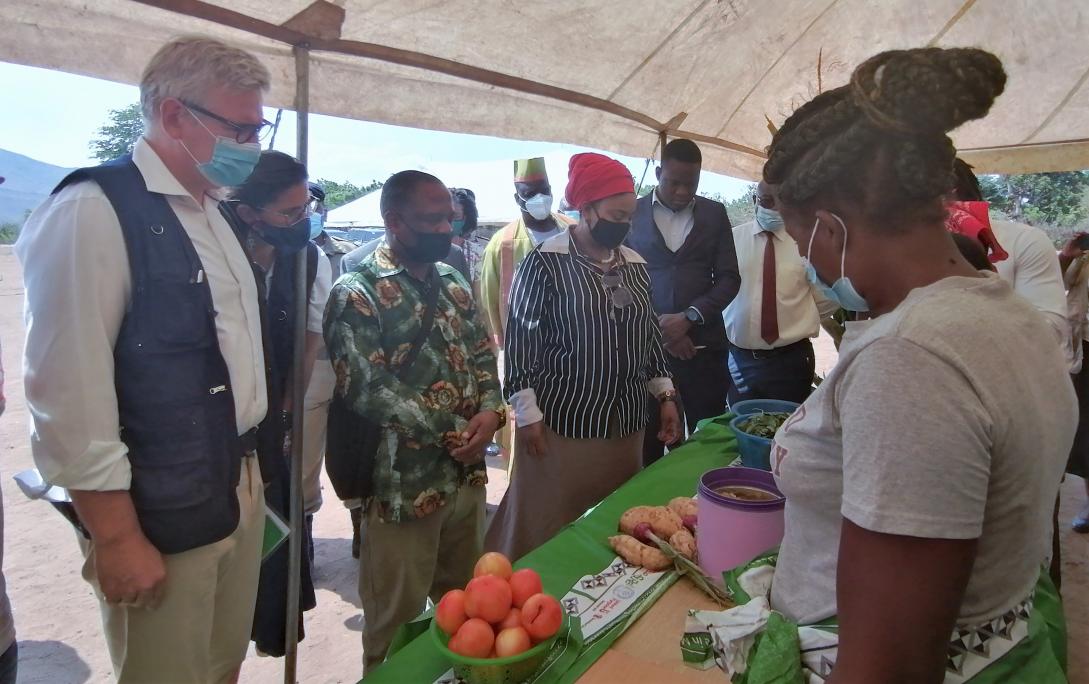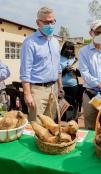EU and Partners Launch Cash+ and Resilience Building Programmes for Social Cash Transfer beneficiaries.

On Thursday, October 6, European Union, together with partners Government of Malawi (Ministry of Gender, Social Welfare and Community Development) Irish Aid, Christian Aid, Concern Worldwide and United Purpose launched three Social Support for Resilience Programme (SoSuRe) Projects in Chikwawa District.
United Purpose together with Save the Children will implement the resilience building activities through SoSuRe FUTURE (Food and Nutrition for Resilience) Project and Christian Aid together with the Synod of Livingstonia through SoSuRe MLUMIKIZI (Linking Communities under Social Protection to Resilience) Project. With co-funding from Irish Aid, Concern Worldwide and EAGLES Relief will implement the resilience activities through RAISE Project.
Speaking at the launch, which took place at Traditional Mlilima, EU Ambassador Rune Skinnebach, said the support to social cash transfer programmes and to building the resilience of vulnerable households is a priority for the EU in Malawi and will continue to be in the new programming period 2021-2027. “The three projects we are launching today build on previous successful experiences and are a clear sign of our commitment. Over the last three years, we could appreciate how effective the whole set of activities included in the cash plus approach is building resilience of vulnerable households,” he emphasized.
Minister of Gender, Social Welfare and Community Development, Patricia Kaliati, pleaded with the beneficiaries of the programmes to make good use of the money and the various interventions so they can better their lives.
EU supports resilience building and cash+ interventions targeting SCTP beneficiaries in Malawi since 2017 through the thematic line Pro-Resilience Action Programme (Pro-Act17). Pro-Act 17 aimed to address food insecurity by increasing vulnerable households’ resilience to food and climate-related shocks.
The cash component (via SCTP) enables beneficiary households to address their immediate basic needs, while the ‘plus’ component, funded via grants to NGOs, supports investments in household production, helping to protect, restore and develop livelihoods, and when possible facilitating the “graduation” process out of poverty.
The three projects will be implemented over the period 2021-2023, with a total budget of €9 million (approx. 8.5 billion Malawi Kwacha) over 7 districts namely, Mzimba, Zomba, Neno, Mwanza, Chikwawa, Nsanje, Mulanje where the EU is funding the implementation of the SCTP programme.





